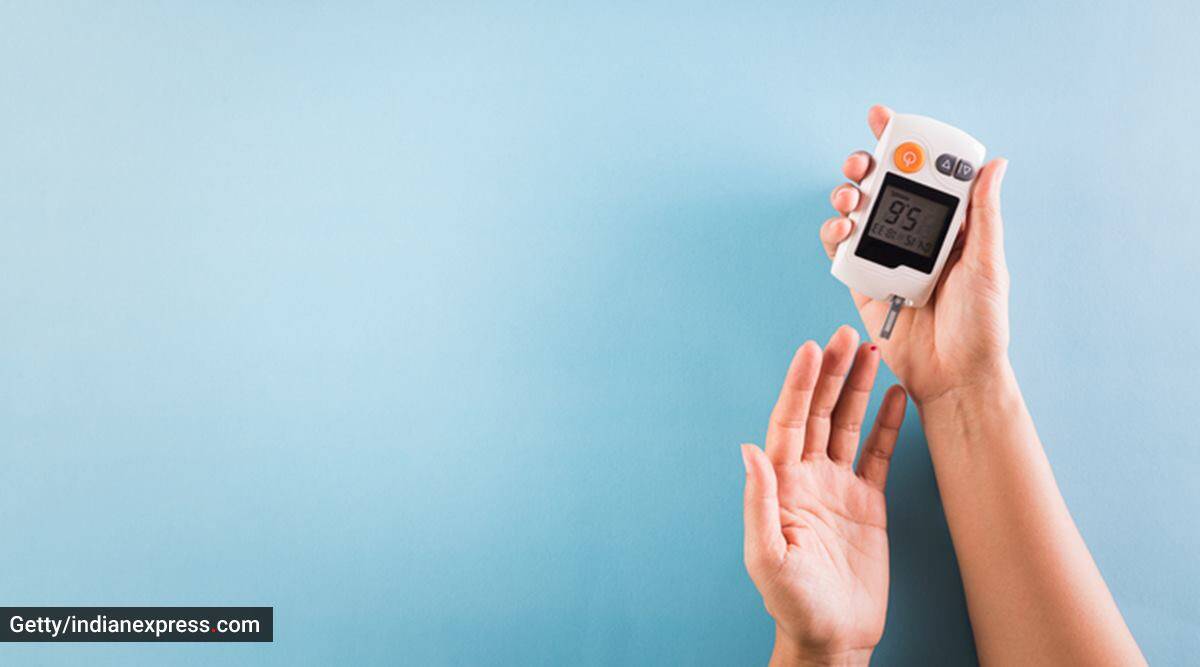- India
- International
Study suggests caffeine may reduce body fat and risk of type 2 diabetes; experts urge caution
Further analysis showed that 43 per cent of the protective effect of blood levels of caffeine on type 2 diabetes came from weight loss; experts delved deeper into the same
 Noting the various claimed benefits of caffeine, Dr Chowti said that it affects individuals differently (Source: Getty Images/Thinkstock)
Noting the various claimed benefits of caffeine, Dr Chowti said that it affects individuals differently (Source: Getty Images/Thinkstock)A new study, published in the BMJ Medicine journal, has claimed that having high levels of caffeine in your blood may reduce your risk of developing type 2 diabetes. For the study, the researchers examined data from a genome-wide association meta-analysis of 9,876 individuals, mostly from European countries. They, however, added that findings could lead to calorie-free caffeinated drinks being used to reduce obesity and type 2 diabetes, but further research is required.
“It does not study or recommend drinking more coffee, which was not the purpose of this research,” Dr Katarina Kos, a senior lecturer in diabetes and obesity at the University of Exeter, was quoted as saying by The Guardian. She added that any caffeinated drink containing sugar and fat would offset the positive effects.
For the study, researchers used the data to examine two common genetic variants — CYP1A2 and AHR genes — in their analysis. According to them, these genes slow down caffeine metabolism, implying that for those who have this variant, less coffee is required to have elevated levels of caffeine in their blood, compared to those who metabolise it quickly. They also collected data on body fat, type 2 diabetes risk, and risk for cardiovascular conditions.
 Further analysis showed that 43 per cent of the protective effect of blood levels of caffeine on type 2 diabetes came from weight loss (Source: Getty Images/Thinkstock)
Further analysis showed that 43 per cent of the protective effect of blood levels of caffeine on type 2 diabetes came from weight loss (Source: Getty Images/Thinkstock)
As such, it was found that genetically predicted higher blood levels of caffeine were linked to lower BMI, whole body fat mass, and type 2 diabetes risk. Further analysis showed that 43 per cent of the protective effect of blood levels of caffeine on type 2 diabetes came from weight loss. However, researchers found no link between caffeine levels and cardiovascular conditions.
Talking about the study, Dr Aditya S Chowti, Senior Consultant, Internal Medicine, Fortis Hospital, Cunningham Road, Bangalore said, “Caffeine, a widely consumed psychoactive substance, has been linked to potential health benefits such as weight loss and reduced risk of type 2 diabetes. Nevertheless, experts urge caution, and more research is required to establish a conclusive link between caffeine consumption and these health benefits.”

Noting the various claimed benefits of caffeine, Dr Chowti said that it affects individuals differently, and the quantity and source of caffeine consumed may influence its effects. “Thus, it is crucial to monitor caffeine intake and consult with a healthcare provider if one has any concerns regarding its impact on health. Individuals with high blood pressure or heart conditions should be especially careful, as caffeine can raise heart rate and blood pressure in certain individuals. Furthermore, avoiding caffeine before bedtime is critical since it can interfere with sleep,” he said.
Adding, Dr Ranga Santhosh Kumar, Consultant General Physician and Diabetologist, Yashoda Hospitals, Hyderabad said that while it’s probable that drinking coffee on a regular basis will lower your risk of developing type 2 diabetes, no one should consume more than 400 mg of caffeine per day. “You should evaluate your overall caffeine intake as well as how many common foods and beverages, such as kombucha, Excedrin, and some varieties of Midol, as well as chocolate- and coffee-flavoured cereals, granola bars, yoghurts, and ice creams, contain caffeine,” he said.
📣 For more lifestyle news, follow us on Instagram | Twitter | Facebook and don’t miss out on the latest updates!
Must Read
Apr 27: Latest News
- 01
- 02
- 03
- 04
- 05



























